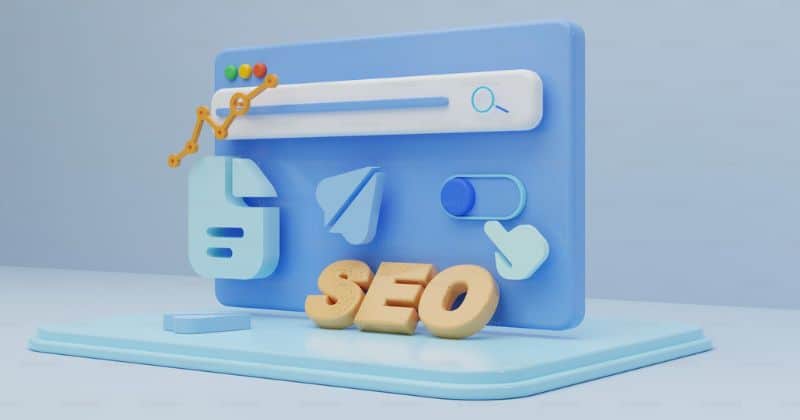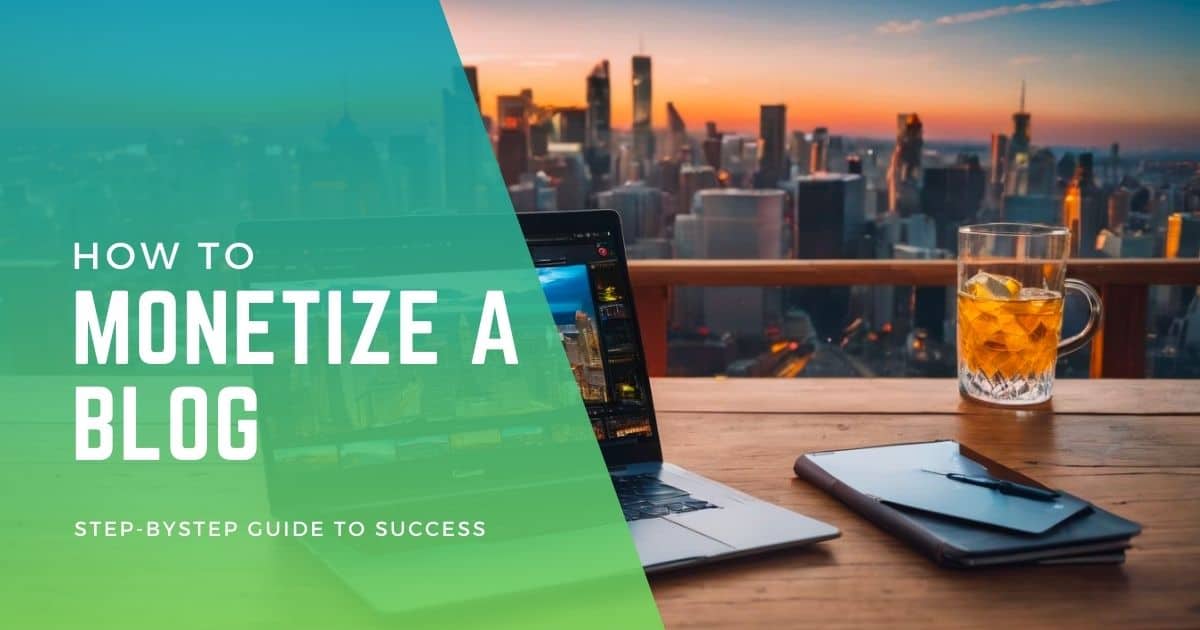Managing finances as a blogger? You’re not alone. Many face the challenge of transforming blogging into a reliable income source while dealing with debt.
It’s not just earning from blogs; it’s about using blogging to manage and reduce debt sustainably. This struggle is real for anyone, including bloggers, marketers, and entrepreneurs in niches trying to grow their reach, income, and revenue stream.
As someone who’s successfully blogged away debt, I offer proven insights. Strategies like diversifying income, enhancing content for better monetization, effective affiliate marketing, ads, and traffic can help. My experience from a financially struggling blogger to financial freedom through blogging provides actionable steps for similar paths.
These strategies meet your need for financial management tips and help build a more profitable blog. Let’s tackle this challenge, turning your blogging into a tool for financial independence.
Blogging Basics
Blogging Defined
Blogging is a platform to share information and personal experiences online, fostering connections with a broader audience. Its versatility allows for diverse content creation, ranging from lifestyle tips to travel adventures.
Blogging Benefits
Blogging offers avenues for personal growth and skill enhancement, nurturing creativity and communication skills. The potential for financial gain through successful blogging is significant, opening opportunities for passive income streams.
Moreover, blogging is a creative outlet, enabling individuals to express themselves freely.
Is it possible to earn money by blogging to pay down my debt?
Monetizing a blog can indeed help in paying off debts effectively. Bloggers can generate substantial income by implementing affiliate marketing and sponsored content strategies.
Successful examples like Pat Flynn and Michelle Schroeder-Gardner demonstrate how blogging has enabled them to become debt-free.
Blog Creation
Platform Selection
When starting a blog, choosing the right platform is crucial. Platforms like WordPress, Blogger, and Wix offer different features and flexibility. Consider your blogging goals before selecting one.
Ensure the platform supports your content type, whether text-based, image-heavy, or video-focused. Look for easy customization options to personalize your blog’s look.
Blog Setup
Choose a Name for Your Site
Selecting a memorable name for your blog is key. A catchy name can attract readers and create brand recognition. Brainstorm unique names that reflect your content.
Select the Hosting for Your Blog
Web hosting is essential for maintaining your blog online. Compare hosting options based on cost, performance, and customer support. Opt for reliable services like Bluehost or SiteGround.
Register Your Domain Name
Registering a domain name that aligns with your content is vital. Choose a name that’s easy to remember and reflects your blog’s focus.
Open Your Web Hosting Account
Creating a web hosting account involves setting up security measures and choosing the right plan for your needs. Ensure the provider offers 24/7 support.
Build Your Website
When building your website, prioritize user-friendly design and layout. Consider using website builders like Squarespace or templates from platforms like WordPress.
Niche Selection
Selecting a niche you’re passionate about is crucial for long-term success. Focus on topics that interest you and have a potential audience base.
Blog Monetization

Affiliate Marketing Explained
Affiliate marketing involves promoting other companies products and earning a commission for each sale. Bloggers can join affiliate programs to generate passive income through their blog content.
By strategically placing affiliate links, bloggers can earn money when their audience purchases through the provided link.
Affiliate marketing benefits
The benefits of affiliate marketing for bloggers include passive income, diversification of revenue streams, and the opportunity to recommend products they genuinely believe in.
To effectively incorporate affiliate links into blog content, it’s essential to disclose the partnerships transparently, choose products relevant to your audience, and seamlessly integrate the links into your posts.
Sponsored Posts Insights
Sponsored posts are collaborations between bloggers and brands where the blogger promotes the brand’s product or service in exchange for payment.
When considering sponsored post opportunities, bloggers should evaluate the brand’s relevance to their niche, negotiate fair compensation, and maintain authenticity in their content.
Successful sponsored post collaborations often result from authentic storytelling, creative visuals, and engaging captions.
Selling on Your Blog
Bloggers can sell products or services on their blogs through methods like e-commerce platforms, digital downloads, or online courses.
Creating a seamless shopping experience for readers involves optimizing website design for easy navigation, providing secure payment options, and offering excellent customer support.
Promoting products on your blog can be done through product reviews, email marketing campaigns, and social media promotions.
Digital Products
Creating digital products such as e-books, online courses, or printables can be lucrative for monetizing a blog. Digital products offer scalability, passive income potential, and the ability to showcase expertise in a specific niche.
Pricing digital products effectively involves researching competitors’ pricing strategies, considering production costs, and testing different price points. Promoting digital products requires email marketing sequences, creating compelling sales pages, and leveraging social proof.
SEO Basics
Understanding SEO

Search Engine Optimization (SEO) is crucial for bloggers to increase visibility on search engines like Google. It involves optimizing your content to rank higher in search results.
SEO helps bloggers attract organic traffic, increasing readership and potential monetization opportunities. Using relevant keywords and meta descriptions can improve your blog’s chances of being found online.
Importance of Optimizing Content
Optimizing your blog posts for SEO can significantly impact your blog’s success. Well-optimized content increases the likelihood of appearing on the first page of search results, driving more traffic to your site.
Bloggers who neglect SEO may miss valuable opportunities to reach a wider audience and grow their online presence. By implementing SEO strategies, you can enhance your blog’s visibility and connect with a larger community of readers.
Beginner-Friendly Tips
- Research keywords related to your blog’s niche and incorporate them naturally into your content.
- Write compelling meta titles and descriptions that accurately reflect your post’s content.
- Use headings and subheadings to organize your blog posts effectively for readers and search engines.
Traffic Generation
Organic Search Traffic
Organic search traffic is necessary for blog growth as it brings high-quality visitors interested in your content.
To increase organic search visibility, focus on keyword optimization and creating quality content that answers users’ queries.
Implementing proper on-page SEO techniques is crucial for better search engine rankings.
Social Media Promotion
Pinterest Traffic
Pinterest serves as a powerful tool for generating blog traffic due to its visual nature and large user base. Creating pinnable content with captivating images can significantly boost your blog’s visibility on Pinterest. Utilize relevant keywords and descriptions to maximize reach and engagement.
YouTube Traffic
Incorporating YouTube videos into your blog strategy can attract a wider audience and drive traffic to your site. Engaging video content enhances user experience and improves your blog’s SEO performance. Optimize video titles, descriptions, and tags to increase visibility on YouTube search results.
Email Marketing Essentials
Email marketing is important in blogger outreach and engagement, as it establishes direct communication with your audience.
Building an email list allows you to nurture relationships, promote new content, and drive traffic back to your blog. Craft compelling subject lines and personalized content to improve open and click-through rates.
Debt Repayment
Formulating a Debt Repayment Plan
To tackle debt effectively, start by setting clear financial objectives and timelines for repayment. Budgeting is crucial for managing student loans and other debts. Allocate a portion of your blogging income towards debt payment to stay on track.
Using Blogging Income for Debt Repayment
Allocate a specific percentage of your blogging earnings towards debt repayment. This strategy ensures consistent progress in reducing the amount owed. Utilizing blogging revenue offers the advantage of achieving financial independence sooner. Learn from successful bloggers who have utilized their income to become debt-free.
How I Paid Off My Debts by Blogging
Embark on a journey to pay off debts through consistent blogging efforts. Overcome challenges and learn valuable lessons along the way. Inspire others by sharing personal experiences of turning blogging into a tool for financial freedom.
Final Thoughts
Exploring debt management through blogging offers a practical path to financial independence. This guide details strategies like affiliate marketing, sponsored content, and digital product sales, providing a foundation for monetizing your blog and reducing debt.
Share your experiences or hurdles with us. Your stories foster our community’s growth and motivate others. Look forward to more insights on boosting your blog’s income and achieving your debt reduction objectives. Together, we’ll explore innovative approaches to blogging success and debt freedom.
FAQs
Can I make money blogging in three months?
Yes, earning income from blogging within three months is achievable. Success depends on generating high-quality content, cultivating a devoted audience, and employing effective monetization strategies. Patience and persistence are key factors in this process.
Which type of blog is best to earn money?
Profitable blog niches include Affiliate Marketing, DIY and Crafting, Online Course Reviews, Healthy Living & Fitness, Personal Finance & Investment, and Traveling on a Budget. These areas offer substantial opportunities for earning through diverse monetization methods.
What is a realistic income from blogging?
A realistic income for bloggers, especially beginners, ranges from $500 to $2,000 per month in the first year. With dedication to content quality and audience growth, bloggers can potentially earn over $100,000 annually after two years.
How much do beginner bloggers make?
Beginner bloggers typically earn between $100 and $200 per month. This income can increase significantly with consistently posting high-quality content and effective blog promotion strategies.



